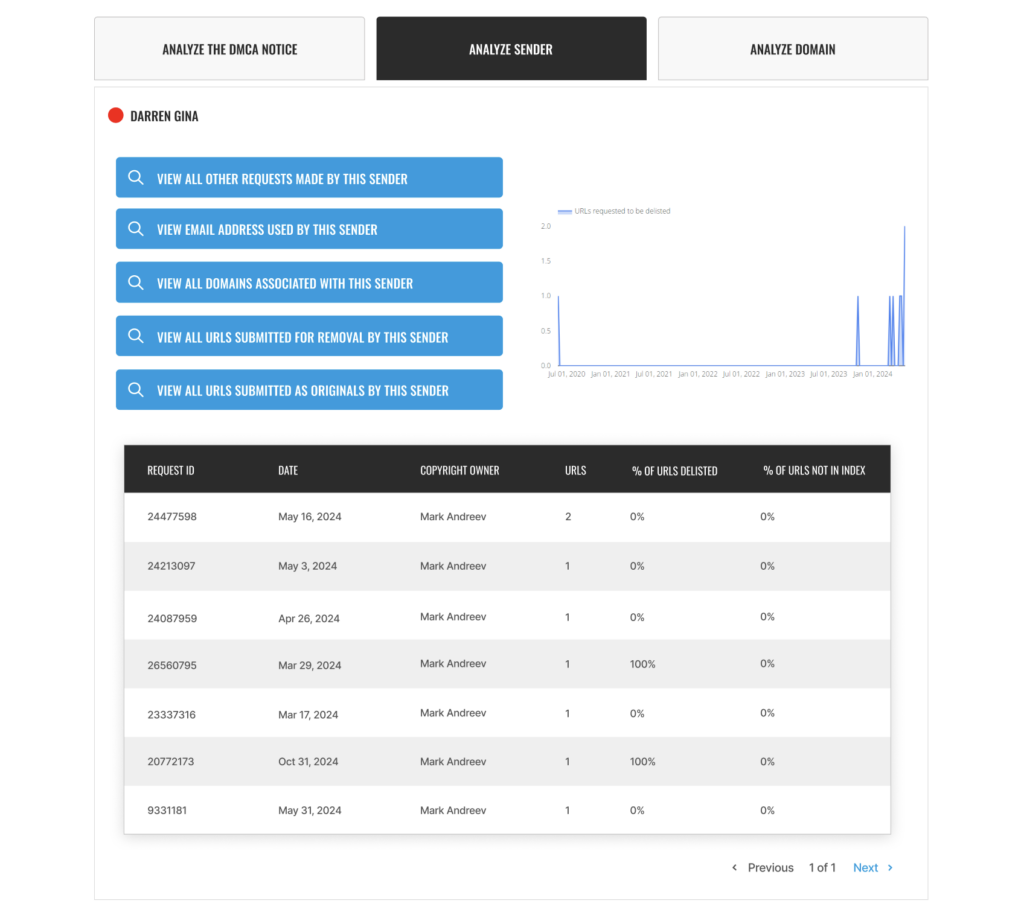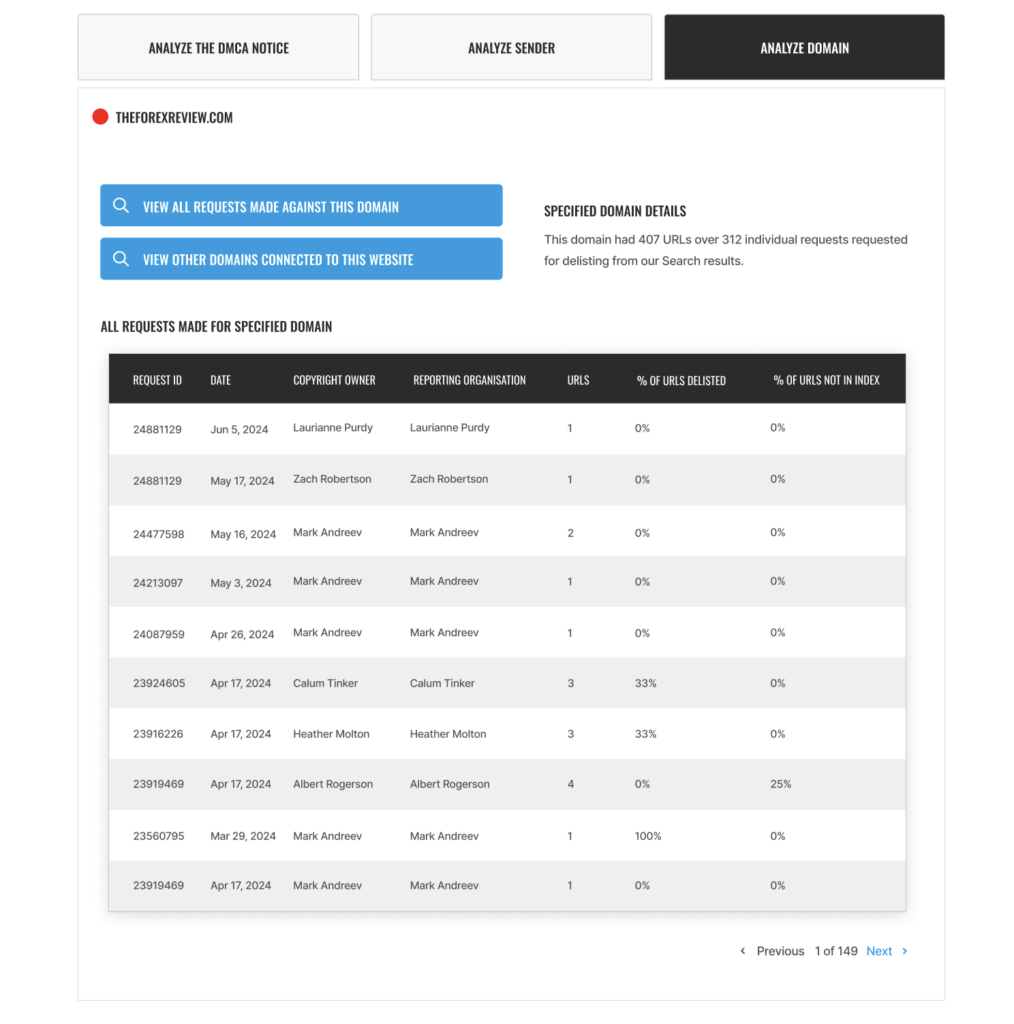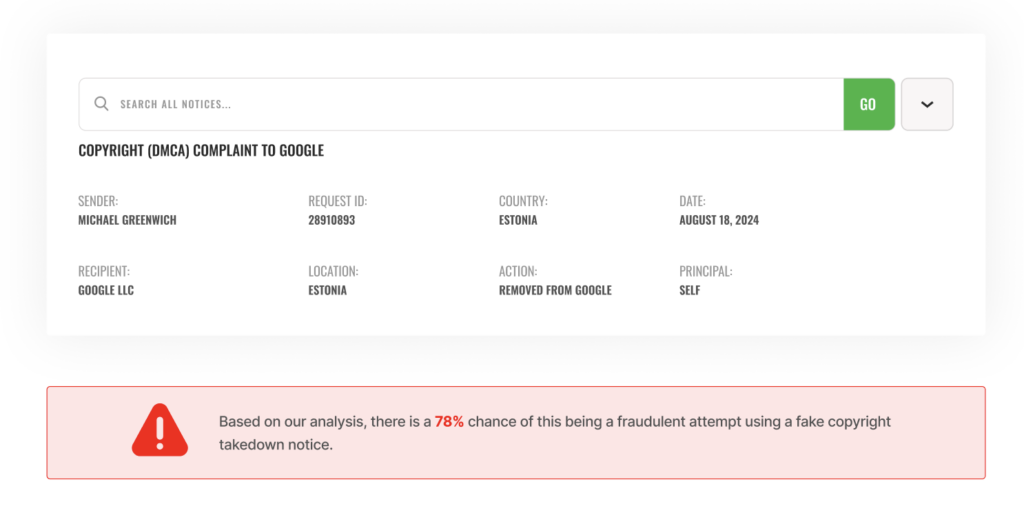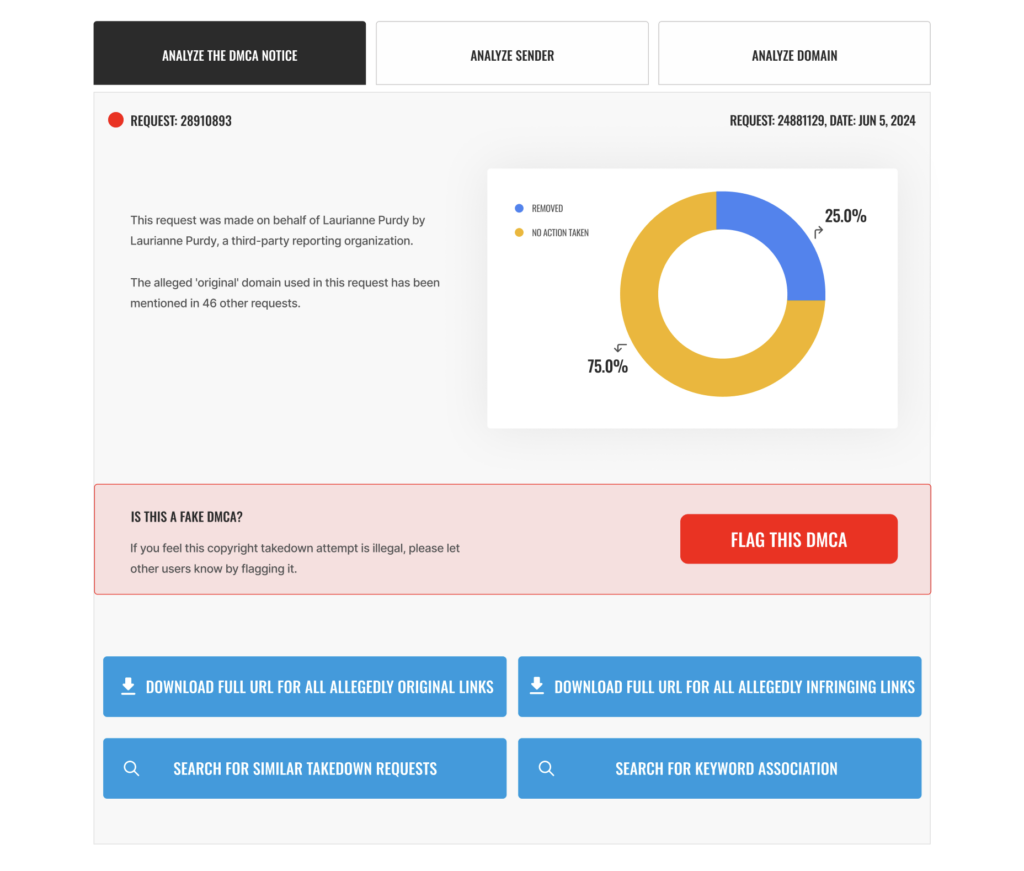What Happened?
WEWE Global, a cryptocurrency platform tied to projects like LYOPAY, has recently come under intense scrutiny following allegations that it operates as a Ponzi and pyramid scheme. Regulatory bodies and financial watchdogs have issued warnings, with reports suggesting that WEWE Global uses the allure of cryptocurrency investments to lure unsuspecting users into its system, promising high returns that rely on continuous recruitment rather than legitimate profits.
Multiple sources, including Scoop Business and Valforex, have detailed how WEWE Global engages in suspicious business practices, often failing to provide clear or transparent information about its actual operations. The platform has been accused of leveraging aggressive marketing tactics and vague investment promises to maintain a flow of new participants, similar to other known Ponzi schemes.

In addition to these concerns, the company has been actively censoring negative reviews and suppressing damaging news. Attempts to bury critical content have been reported, with accusations that WEWE Global employs tactics to silence detractors and prevent the spread of warnings about its questionable business model. Despite these efforts, the platform continues to face increasing scrutiny as more users and industry watchdogs expose the red flags surrounding its operations.

Analyzing the Fake Copyright Notice(s)
Our team collects and analyses fraudulent copyright takedown requests, legal complaints, and other efforts to remove critical information from the internet. Through our investigative reporting, we examine the prevalence and operation of an organized censorship industry, predominantly funded by criminal entities, oligarchs, and disreputable businesses or individuals. Our findings allow internet users to gain insight into these censorship schemes’ sources, methods, and underlying objectives.
List of Fake Copyright Notices for WEWE Global
| Number of Fake DMCA Notice(s) | 2 |
| Lumen Database Notice(s) | https://lumendatabase.org/notices/35332734 https://lumendatabase.org/notices/36504760 |
| Sender(s) | Demin Wilson |
| Date(s) | Aug 5, 2023 Oct 4, 2023 |
| Fake Link(s) Used by Scammers | https://www.tumblr.com/24-newspress-posts/730248224937525248/wewe-global-review-weweglobal-is- a-crypto-ponzi https://www.tumblr.com/24newspress/722190215663550464/suspected-ponzi-and-pyramid-scheme- warning |
| Original Link(s) Targeted | https://business.scoop.co.nz/2023/02/09/suspected-ponzi-and-pyramid-scheme-warning-wewe-global- and-lyopay-com/ https://www.valforex.com/wewe-global-review-wewe-global-is-a-crypto-ponzi-scheme/ |
Evidence and Screenshots


How do we investigate fake DMCA notices?
To accomplish this, we utilize the OSINT Tool provided by FakeDMCA.com and the Lumen API for Researchers, courtesy of the Lumen Database.
FakeDMCA.com is the work of an independent team of research students and cybersecurity professionals, developed under Project UnCensor. Their OSINT Tool, designed to uncover and analyze takedown notices, represents a significant step forward in combating these abusive practices. It has become a valuable resource, increasingly relied upon by journalists and law enforcement agencies across the United States.
Lumen, on the other hand, is an independent research initiative dedicated to studying takedown notices and other legal demands related to online content removal. The project, which operates under the Berkman Klein Center for Internet & Society at Harvard University, plays a crucial role in tracking and understanding the broader implications of such requests.
What was WEWE Global trying to hide?
WEWE Global is a cryptocurrency platform that positions itself as a multi-service crypto ecosystem, offering users various investment opportunities and financial services tied to blockchain technology. Among the services promoted are staking, trading, and using their native tokens to access a range of products. WEWE Global is also linked to LYOPAY, another platform associated with crypto-based financial services.
Adverse News, Complaints, and Allegations:
- Ponzi and Pyramid Scheme Allegations:
Multiple sources, including Scoop Business and Valforex, have labeled WEWE Global as a suspected Ponzi or pyramid scheme. The platform has been accused of generating returns for older investors through the recruitment of new participants rather than legitimate business activities. This structure is reminiscent of a classic pyramid scheme, where revenue relies on continuous recruitment(ForexBrokers.com)(AZ Forex Brokers). - Vague Business Model and Lack of Transparency:
WEWE Global has been criticized for failing to provide clear and transparent details about how its revenue generation works. Investors are often enticed with promises of high returns through its cryptocurrency-related services, but there is little to no verifiable information on how these returns are achieved, leading to skepticism and regulatory concerns(AZ Forex Brokers). - Regulatory Warnings:
Financial watchdogs have issued warnings about WEWE Global’s activities, urging potential investors to be cautious. The platform’s business model has been compared to schemes that rely on the continuous recruitment of new members to pay out older ones, which raises red flags for regulators(AZ Forex Brokers). - Efforts to Suppress Negative Information:
Reports suggest that WEWE Global is actively working to suppress negative reviews and censor damaging news. This includes attempting to downplay or remove critical content that highlights the potential risks associated with its platform. Despite these efforts, many websites and regulatory bodies continue to publish warnings and reviews outlining the platform’s questionable practices(ForexBrokers.com)(AZ Forex Brokers).
In summary, WEWE Global is a cryptocurrency platform facing serious allegations of operating as a Ponzi or pyramid scheme. Regulatory bodies and industry watchdogs have flagged the platform for its opaque business model and reliance on new user recruitment to sustain payouts. Despite attempts to hide or downplay these issues, the platform’s reputation continues to face scrutiny. For further details, refer to the reports on Scoop Business and Valforex.
Only WEWE Global benefits from this crime.

Since the fake copyright takedown notices were designed to remove negative content for WEWE Global from Google, we assume WEWE Global or someone associated with WEWE Global is behind this scam. It is often a fly-by-night Online Reputation agency working on behalf of WEWE Global. In this case, WEWE Global, at best, will be an “accomplice” or an “accessory” to the crime. The specific laws may vary depending on the jurisdiction. Still, the legal principle generally holds that if you actively participate in planning, encouraging, or facilitating a crime, you can be charged with it, even if you did not personally commit it.
How do we counteract this malpractice?
Once we ascertain the involvement of WEWE Global (or actors working on behalf of WEWE Global), we will inform WEWE Global of our findings via Electronic Mail.
Our preliminary assessment suggests that WEWE Global may have engaged a third-party reputation management agency or expert, which, either independently or under direct authorization from WEWE Global, initiated efforts to remove adverse online content, including potentially fraudulent DMCA takedown requests. We will extend an opportunity to WEWE Global to provide details regarding their communications with the agency or expert, as well as the identification of the individual(s) responsible for executing these false DMCA notices.
Failure to respond in a timely manner will necessitate a reassessment of our initial assumptions. In such an event, we will be compelled to take appropriate legal action to rectify the unlawful conduct and take the following steps –
- Inform Google about the fraud committed against them.
- Inform the victims of the fake DMCA about their websites.
- Inform relevant law enforcement agencies
- File counter-notices on Google to reinstate the ‘removed’ content
- Publish copies of the ‘removed’ content on our network of 50+ websites
By investigating the fake DMCA takedown attempts, we hope to shed light on the reputation management industry, revealing how WEWE Global and companies like it may use spurious copyright claims and fake legal notices to remove and obscure articles linking them to allegations of fraud, tax avoidance, corruption, and drug trafficking…
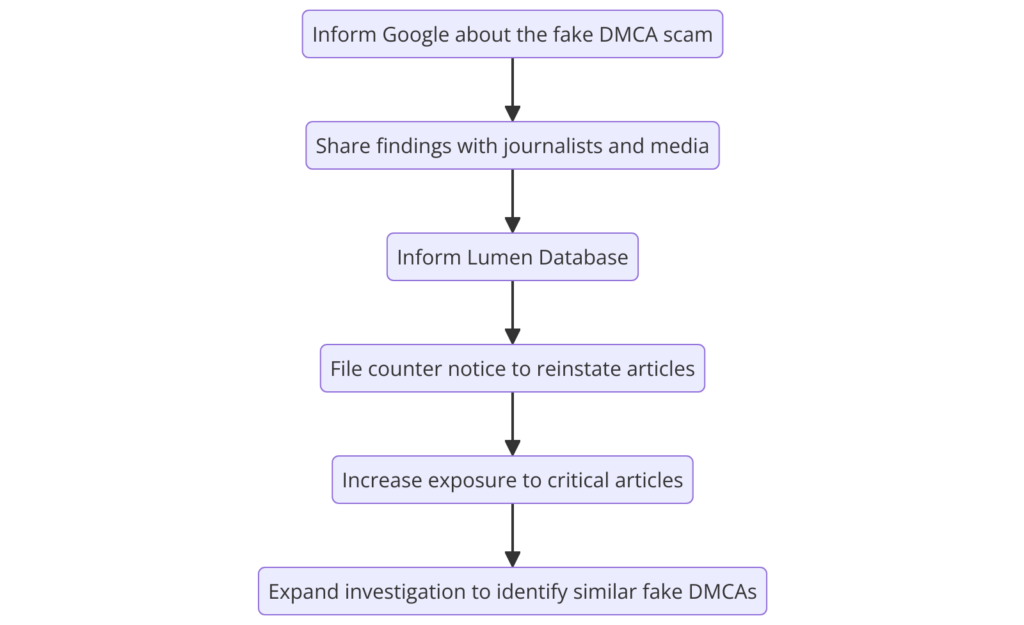
Since WEWE Global made such efforts to hide something online, it seems fit to ensure that this article and our original review of WEWE Global, including but not limited to user contributions, remain a permanent record for anyone interested in WEWE Global.
A case perfect for the Streisand effect…
Potential Consequences for WEWE Global
Under Florida Statute 831.01, the crime of Forgery is committed when a person falsifies, alters, counterfeits, or forges a document that carries “legal efficacy” with the intent to injure or defraud another person or entity.
Forging a document is considered a white-collar crime. It involves altering, changing, or modifying a document to deceive another person. It can also include passing along copies of documents that are known to be false. In many states in the US, falsifying a document is a crime punishable as a felony.

Additionally, under most laws, “fraud on the court” is where “a party has sentiently set in motion some unconscionable scheme calculated to interfere with the judicial system’s ability impartially to adjudicate a matter by improperly influencing the trier of fact or unfairly hampering the presentation of the opposing party’s claim or defense.” Cox v. Burke, 706 So. 2d 43, 46 (Fla. 5th DCA 1998) (quoting Aoude v. Mobil Oil Corp., 892 F.2d 1115, 1118 (1st Cir. 1989)).
Is WEWE Global Committing a Cyber Crime?
Yes, it seems so. WEWE Global used multiple approaches to remove unwanted material from review sites and Google’s search results. Thanks to protections allowing freedom of speech in the United States, there are very few legal ways to do this. WEWE Global could not eliminate negative reviews or search results that linked to them without a valid claim of defamation, copyright infringement, or some other clear breach of the law.
Faced with these limitations, some companies like WEWE Global have gone to extreme lengths to fraudulently claim copyright ownership over a negative review in the hopes of taking it down.
Fake DMCA notices have targeted articles highlighting the criminal activity of prominent people to hide their illegal behavior. These people, which include US, Russian, and Khazakstani politicians as well as members from elite circles including the mafia and those with massive financial power, are all connected – and alleged corruption ranging from child abuse to sexual harassment is exposed when exploring evidence found at these URLs. It appears there’s a disturbing level of influence being exerted here that needs further investigation before justice can be served. WEWE Global is certainly keeping interesting company here….

The DMCA takedown process requires that copyright owners submit a takedown notice to an ISP identifying the allegedly infringing content and declaring, under penalty of perjury, that they have a good faith belief that the content is infringing. The ISP must then promptly remove or disable access to the content. The alleged infringer can then submit a counter-notice, and if the copyright owner does not take legal action within 10 to 14 days, the ISP can restore the content.
Since these platforms are predominantly based in the U.S., the complaints are typically made under the Digital Millennium Copyright Act (DMCA), which requires online service provide





